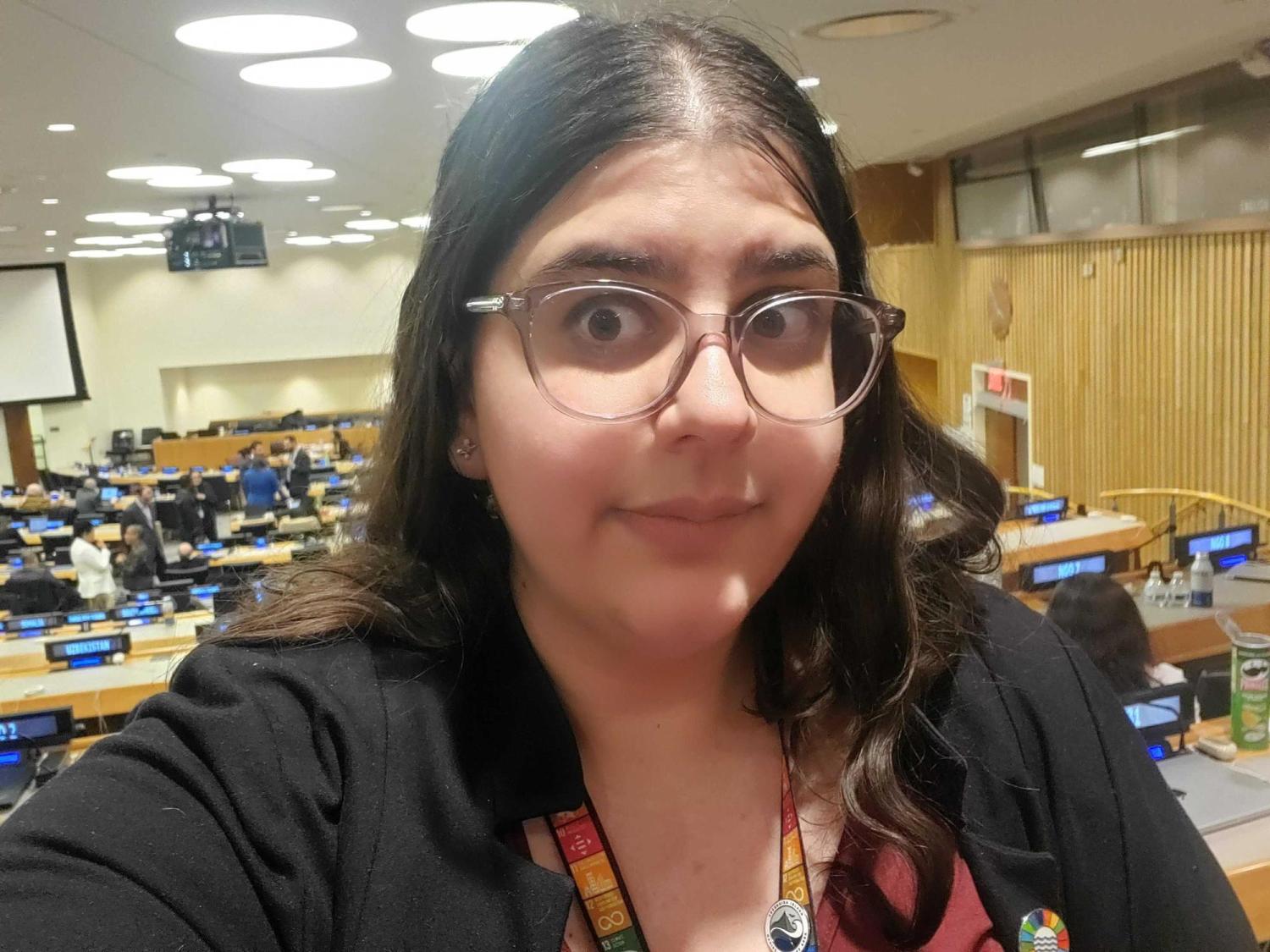ENVS PhD candidate has a front row seat to the passage of an historic UN treaty to conserve the High Seas

ENVS PhD candidate, Emily Nocito, had a front row seat to the passage of the Biodiversity Beyond National Jurisdiction (BBNJ) Agreement earlier this week. The following is an account of her experience studying the negotiation and passage of BBNJ over the last 6 years, and her summary of the function of the treaty for ocean conservation. CU Boulder Today also featured Ms. Nocito's experience and the passage of the treaty in a piece, which can be found here.
"On 4 March 2023 at the United Nations Headquarters in NYC, a new Agreement for the high seas was reached. Areas beyond national jurisdiction, or the high seas as many call it, are governed through a piecemeal, fragmented system of governance. This agreement - often called the Biodiversity Beyond National Jurisdiction (BBNJ) Agreement - provides a concise framework for countries to work towards protecting and conserving the high seas. The BBNJ Agreement outlines aspects such as area-based management tools, environmental impact assessments, marine genetic resources, capacity building and transfer of technology, and represents the first piece of international ocean governance in decades.
The BBNJ process has been ongoing for over 15 years, with negotiations disrupted by the global pandemic. The fifth and final meeting occurred in August 2022, but consensus on the text could not be reached. The fifth meeting resumed in late February, and the final hurdle saw delegations negotiating for over 30 hours straight to reach a treaty text.
The BBNJ Agreement still needs to be adopted and ratified by UN member states, but the hope is that once it is entered into force there will be a streamlined process for governance of oceans related to its protection and conservation of the marine environment and the use and benefit-sharing of marine genetic resources.
As a researcher attending and studying this process since the preparatory committee phase (2017), seeing this agreement finally come to fruition was amazing. The long hours and hard work over so many years, by so many people finally paid off. This feels like a huge win not just for the oceans, but for multilaterism and environmental governance as a whole, especially given the breakdown within and between country’s relationships, increasing polarization of science, and increased natural and human-induced disasters to our environment. The BBNJ Agreement and the effort that got us there feels like a beacon of light in an ongoing storm."

